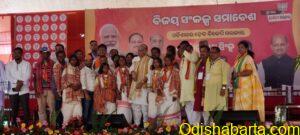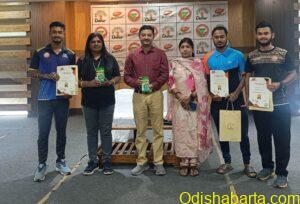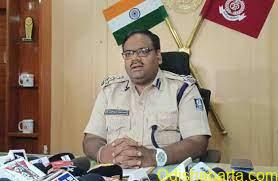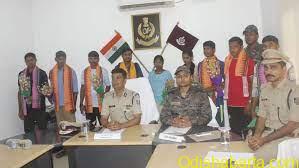Dr.Seetharam,Member Steering Committee, FANSA Network said that “for localizing SDG 6, the Network enabled 20 WASH CSOs from eight states to learn from the community, CFAR and urban local body, Bhubaneswar and their collective effort to build equal and gender responsive WASH and the learning was rich.”
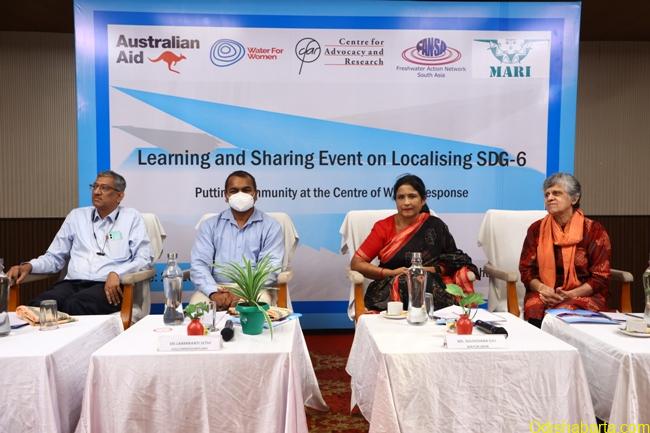
Bureau,Odishabarta
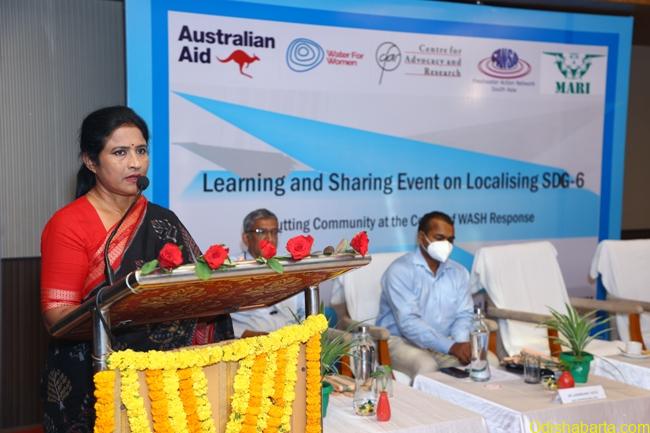
Bhubaneswar: May 26, 2022: A Learning-Sharing event on Localising SDG -6: Placing Community at the centre of WASH Response was hosted by Centre for Advocacy and Research, MARI and Freshwater Action Network South Asia (FANSA) in Bhubaneswar. The event brought together multi-stakeholders and WASH practitioners from 20 CSOs from across eight states, who are part of FANSA Network to deliberate on model practices in community engagement being implemented across 67 wards in Bhubaneswar by CFAR
In her keynote address Smt. Sulochana Das, Mayor, Bhubaneswar highlighted the efforts of the State government and Bhubaneswar Municipal Corporation to make Bhubaneswar an inclusive and livable city for all citizens including marginal communities. “As part of Jaga Mission 200 slums have been upgraded as Biju Adarsh Colonies. The government has developed infrastructure in collaboration with Slum Development Association to make the process participatory and inclusive. We now seek support of CSOs in strengthening community ownership at all levels to ensure sustainability and equitable access for all across the State, “she shared.
Shri Lakshmi Kanta Sethi, Additional Commissioner, Bhubaneswar Municipal Corporation, thanked CFAR for strengthening the community–government connect. “Governments cannot succeed without the cooperation of CSOs and community and we are thankful to CFAR for its collaboration with the Corporation in spreading awareness, educating people and driving transformative change.”
Samir Ranjan Dash, State Lead, CFAR added that “with support of Bhubaneswar Municipal Corporation pro-poor and community led models of governance have been set up in Bhubaneswar, which are scalable and replicable.”
Akhila Sivadas, Executive Director, CFAR, urged the Mayor and Additional Commissioner for their continued support and reaffirmed “the need to raise voice and agency of vulnerable groups to strengthen their involvement and participation in all planning and monitoring processes for slum up gradation and redevelopment.”
Smt. Jayashree Raghunandan, Additional Chief Secretary, Tamil Nadu presented her insights on localizing SDGs through collaboration with communities. She stated, “through convergence across different sectors, documentation of lessons from the ground and dissemination of best practices across states we can ensure that time is not wasted in duplicating efforts but opportunities for leveraging are tapped to their fullest to impact SDG indicators”.
R.S.N Sharma, Project Lead, Ministry of Panchayati Raj shared the innovative efforts made for localising SDGs “by designating Swachha Grahis as change agents and strengthening functioning of village development and WASH Committees”.
Elisa Pattanaik, Project Manager, TSU E&Y, presented the inclusive city sanitation model adopted across 114 urban local bodies in Odisha. She highlighted “the efforts made in mainstreaming SHGs of transgender and sanitary workers as change agents in managing community toilets, FSTPs contributing to safe solid and liquid waste management across the state”. Preeti Prada Panigrahi, Senior Manager, Janagraaha and Team Lead Jaga Mission shared the new approach of the mission moving from a “contractor-led to community driven to strengthen community ownership”.
Reflecting on the field visit in ward 21, Dr Seetharam, FANSA highlighted on the “need to ensure transparency and accountability so that synergies can be built between theory and praxis.” Mr P.C Mishra, FANSA stated “it is very important that women and girls have access to information and understand WASH in the context of their human rights and entitlement”
Snehalata, Regional Coordinator, and Murali Ramisetty of FANSA thanked CFAR for sharing intensive learnings on community engagement which are “replicable, scalable and need to be disseminated across regional networks”
In his concluding remarks, Shri Uday Shankar, National Convener, FANSA, stressed on the need to “develop a common platform for cross learning, sharing of innovating pro-people solutions and advocating with stakeholders as a network for strengthening SDG 6.”
Representatives from Jharkhand, Karnataka and Andhra Pradesh appreciated government’s and CFAR’s efforts in using digital tools such as IVRS and QR code, empowering community to work in partnership with urban local body and agencies and sought support to replicate the same in their respective work.
The two day-learning sharing event in Bhubaneswar is part of a WASH intervention led by CFAR is supported by Water for Women, Department of Foreign Trade, Australian Government


